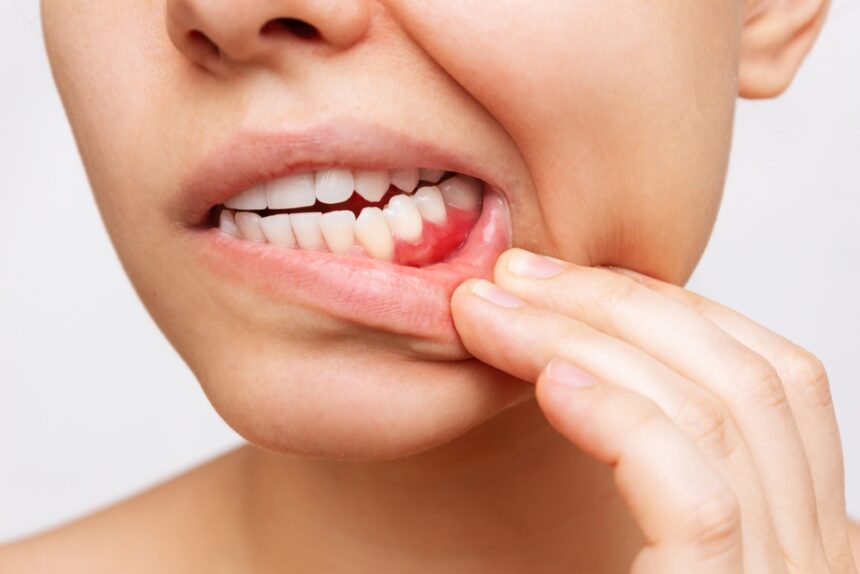Periodontal disease, often commonly referred to as gum disease, is a common dental problem that affects millions of people worldwide. Around 47.2% of adults over the age of 30 have this form of gum disease, but its prevalence is probably higher in most other countries. It is caused by the accumulation of plaque and bacteria in the gums, leading to inflammation, swelling, and eventually damage to the tissues supporting the teeth.
Here we have answered some of the most common questions relating to periodontal disease, together with tips for avoiding it.
What is Periodontal Disease?
Periodontal disease is an infection of the gums that affects the structures supporting the teeth, including the ligaments, bone, and gums. It starts with the accumulation of plaque, which is a sticky, colorless film of bacteria that forms on teeth. If left untreated, the bacteria in plaque can irritate the gums, causing inflammation and leading to periodontal disease.
Periodontal disease is linked with a number of other diseases. It can even cause hearning loss.
What are the Symptoms and Causes of Periodontal Disease?
Periodontal disease has several stages, and the symptoms can vary depending on the severity of the condition. In the early stages, the symptoms may include red, swollen, and tender gums that bleed easily during brushing or flossing. As the disease progresses, the gums may start to recede, and pockets may form between the teeth and gums. These pockets can trap bacteria, leading to further damage to the supporting tissues and bone, which eventually leads to tooth loss.
Several factors can contribute to the development of periodontal disease. Poor oral hygiene is one of the chief causes, however, smoking, stress, and certain medical conditions such as diabetes can also increase the risk of developing the disease. Genetics may also play a role in predisposing some individuals to periodontal disease.
“9 times out of 10, patients displaying early signs of gum disease have usually developed it because they have not kept up with regular dental maintenance activities such as brushing and flossing” says Dr Katy Pirayesh, the principal dentist at Preston Circus Dental Practice in Brighton.
What are the Best Treatment Options for Periodontal Disease?
The treatment options for periodontal disease depend on the severity of the condition. In the early stages, thorough scaling and root planning with a dental hygienist may be sufficient to remove all the plaque and tartar build-up from the teeth and gums.
If the disease has progressed to a more advanced stage, more aggressive treatment may be necessary. This may include gum surgery to remove infected tissue and repair damage to the supporting structures. Bone grafts and tissue regeneration procedures may also be used to restore damaged bone and tissue.
Is the treatment expensive?
The cost of periodontal disease treatment can vary depending on the severity of the condition and the type of treatment required. Early intervention is always less expensive compared to the cost for advanced periodontal disease treatment. Your insurance may cover a portion of the cost, but it is important to check with your provider before undergoing treatment.
How Can I Find the Right Dentist to Treat Periodontal Disease?
If you suspect you have periodontal disease, it is important to find a dentist or periodontist who specialises in the diagnosis and treatment of the disease. You can start by asking for recommendations from friends or family members who have received treatment for periodontal disease.
You can also search for periodontists online or consult with your general dentist. Be sure to ask about the dentist’s qualifications and experience in treating periodontal disease. Many dentists are happy to provide a consultation and treatment plan recommendation.
How can I avoid developing the disease in the first place?
There are several things you can do to avoid developing periodontal disease. The following tips can help you maintain healthy gums and prevent the development of gum disease:
- Practice good oral hygiene every day – Brush your teeth twice a day with a fluoride toothpaste and floss at least once a day to remove plaque and food particles from your teeth and gums.
- Quit smoking – Smoking is a significant risk factor for gum disease. Quitting smoking can help reduce your risk of developing gum disease and other oral health problems.
- Eat a balanced diet – A diet rich in fruits, vegetables, and whole grains can help improve your overall health, including your oral health. Avoid sugary and starchy foods, which can promote plaque build-up.
- Get regular dental check-ups – Regular dental check-ups and visits to your hygienist can help detect and treat early signs of gum disease before they progress into more severe conditions.
- Use mouthwash – Using an antimicrobial mouthwash can help reduce bacteria in the mouth and prevent plaque build-up.
- Consider a water flosser – Water flossers can be an effective alternative to traditional flossing for removing plaque and food particles from between teeth and along the gumline.
By following these tips and maintaining good oral hygiene habits, you can help reduce your risk of developing periodontal disease and maintain healthy gums and teeth.
In summary
In conclusion, periodontal disease is a preventable and manageable condition if proper care and attention is applied. Practicing good oral hygiene and visiting the dentist for routine check-ups and hygienist appointments, can help prevent the development of periodontal disease. If you suspect you have periodontal disease, seek treatment from a qualified dentist or periodontist to prevent further damage and tooth loss. Remember, early intervention is the key to successful treatment and a healthier smile.








